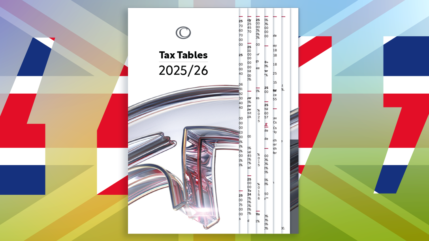Probate is the legal right to deal with a deceased person’s estate. A common problem we see when someone needs to access a deceased person’s funds to pay inheritance tax (IHT), is that they need probate first – and to get probate, you need to pay inheritance tax. Sound challenging? It can be…
The chances of becoming trapped in this chicken and egg nightmare have increased. An unhealthy mixture of higher asset values and IHT thresholds frozen until the end of the 2027-28 tax year means that the number of deaths resulting in an IHT charge is rising – up by 17% in 2020-21, according to recently released figures. In June, IHT receipts hit an all-time monthly high of £795m, while the £7.1bn raked in in 2022-23 was £1bn up on the previous tax year.
Timelines and expectations
Inheritance tax must be paid after the end of the sixth whole month following a person’s death, with interest accruing on any outstanding balance. As a result of increasing demand putting pressure on the Probate Office, gov.uk currently states probate will be granted within 16 weeks of submitting an application, although it can take longer if additional information is required. To make matters worse, in July, HMRC raised the interest rate it charges on late payment of tax to 7.5%. Making early payments before you know the exact amount the estate owes could help you avoid potential interest charges.
Stuck in limbo
Among the various challenges we can be faced with in this scenario, is that while many estates’ assets are tied up in property, that value cannot be released until probate has been granted, allowing the property to be sold – although it can be marketed and vendors can accept an offer.
Another challenge might be a beneficiary of a will planning to use an inheritance to pay down their mortgage, where a delay in probate being granted could result in them incurring more in interest charges.
Not always necessary
There are some situations where probate won’t be necessary, for example, if the person who died only had savings, had a joint bank account, or where they owned land or property as joint tenants – in which case the property automatically passes to the surviving owner. It’s a good idea to check with the financial organisations the deceased person used to find out whether probate will be needed to access their assets.
“Ask yourself ‘What would your financial position be should you pass away? Would your executors have enough liquidity in your estate to pay the tax?’.”
Graeme Clark, Chartered Financial Planner
Helping clients circumnavigate the IHT/ probate challenge
If it’s a suitable solution, Courtiers can release funds to allow clients to settle a IHT bill before probate. To do this a client must provide an IHT reference number, which ensures that money goes directly to HMRC (it cannot go to their solicitor first). Courtiers can guide clients in the process of obtaining an IHT reference number.
The right people in the right seats
It’s incredibly important that the people dealing with an estate (usually executors named in the deceased’s will) have the right skills, aptitude and time to deal with what can be a complicated and long process. Courtiers listens, understands and guides clients to help ensure appropriate plans are in place to suit individual circumstances.
Capital Gains Tax
Selling assets to settle an IHT bill needs careful consideration. Thinking about any Capital Gains Tax (CGT) implications of selling assets to pay an IHT bill, it can work both ways depending on whether the value of the assets has risen or fallen since probate was applied for.
If the assets are held within an Individual Savings Account (ISA), as long as those assets are sold within three years of the date of death, no CGT will be due. Although ISAs don’t fall outside people’s estates like pensions, potentially they are a good source of capital gains free capital that could be liquidated to pay part or all of the IHT burden.
Flexible ISAs
A person whose spouse dies could use their ISA to pay the IHT bill on the estate. Then, once probate has been granted and the estate sorted out, the spouse could make use of the rules on flexible ISAs, which would allow them to replenish the ISA from money paid to them from the estate without eating into their £20,000 annual ISA subscription allowance. It’s important to be aware that to benefit from this rule, any cash taken out of a flexible ISA to pay an IHT bill must be put back in during the same tax year. The Courtiers stocks and shares ISA is a flexible ISA.
Trusts
Trusts can be a useful way of avoiding the IHT/probate problem. While probate is the legal right to deal with a person’s estate, trusts are separate legal entities from a person’s estate, which means that assets held in trust can be used to pay an IHT bill before probate is granted.
An article written by Graeme in 2019, goes into detail on how trusts can be helpful, while pointing out some of the potential downsides. Pensions, as long as they are master trusts, which the majority of pensions are, including the Courtiers SIPP (self-invested personal pension), are also outside the remit of probate and can provide liquidity for the estate.
Long-term planning
When it comes to avoiding IHT/probate limbo, long-term planning is especially valuable. As Chartered Financial Planner Graeme Clark says, “Ask yourself ‘What would your financial position be should you pass away? Would your executors have enough liquidity in your estate to pay the tax?’.”
Summing up
Although the IHT/probate conundrum isn’t new, it’s clear that the situation facing the families and loved ones of those who’ve died is continuing to worsen.
There are solutions available to help settle an IHT bill before probate is granted and you can establish what might be suitable for your personal circumstances in discussions with your Courtiers Adviser. As an increasing number of people are finding themselves in this chicken egg scenario, the value of long-term financial and estate planning with the support of your personal Courtiers Adviser in helping you avoid this situation becomes clear.














